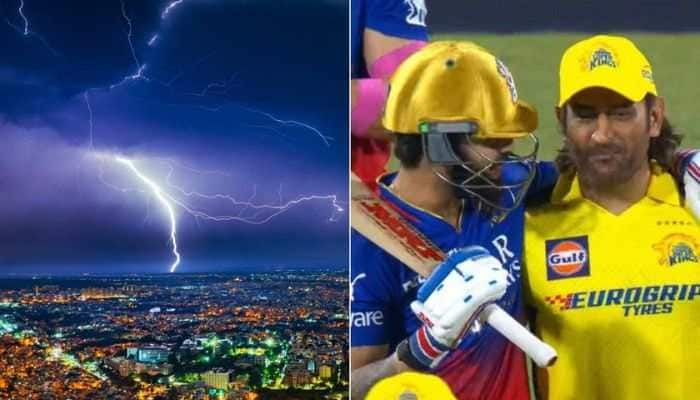Explained: All You Need To Know About Pro-Palestine Protests By Students At US Universities
Protests in support of Palestine have seen participation from students, faculty members, as well as external activists from Jewish and Muslim communities. Here's all you need to know about them...
Trending Photos
)
In recent weeks, protests in support of Palestinians over the conflict in Gaza have rocked America, leading to clashes between police and demonstrators, resulting in the removal of protest camps multiple times. However, students are still continuing to protest at some places.
What do Pro-Palestinian Protesters Want?
At protest sites, students have demanded a permanent ceasefire in Gaza, the cessation of American military aid to Israel, divestment from arms suppliers to universities, and companies profiting from war. Demonstrating students have also demanded apologies for those students and faculty members expelled for participating in protests.
Who are the Pro-Palestinian Protesters?
Protests in support of Palestine have seen participation from students, faculty members, as well as external activists from Jewish and Muslim communities. Organizing groups include organizations like Students for Justice in Palestine and Jewish Voice for Peace. Some Jewish students have expressed feeling unsafe on campus and intimidated by alleged 'anti-Semitic' chants.It's interesting to note that in Texas University, Austin, among the 79 individuals arrested on April 29, 45 had no affiliation with the university.
Who are the Anti-Protest demonstrators?
In response to Pro-Palestinian demonstrators, Israeli-American and Zionist groups, along with members of the Jewish-American community, have been protesting. In Los Angeles, hundreds participated in a counter-rally organized by the Israeli Advocacy Group and the Israeli American Council.
On May 1, a scuffle broke out between members of a Zionist group and Pro-Palestinian demonstrators at the University of California, Berkeley. At Mississippi University, hundreds of students protested against Pro-Palestinian demonstrators on May 2. Some displayed American flags and banners in support of former President Donald Trump.
What has been the administration's response?
Some university administrations have relied on local police to arrest demonstrators and clear camps and protest sites. Others have allowed protests to continue or reached compromises. At Manhattan Campus, police were sent to disband a camp set up by students the day after it was established on April 18. On April 30, police again raided the camp and the occupied building, resulting in dozens of arrests.
California University, Berkeley has permitted the Pro-Palestinian campus camp to remain as long as it does not disrupt campus operations or pose a threat of violence.
Northwestern University, Brown University, and Rutgers University are among colleges that have agreed to dismantle camps. Brown is considering divestment from companies linked to Israel. Rutgers has agreed to establish an Arab cultural center and consider the creation of a Middle East studies department.
What's the impact on daily campus life?
Columbia University has had to switch to virtual classes several times. Southern California University canceled its main stage graduation ceremony. This decision followed the cancellation of a Muslim student's closing speech and the removal of the Pro-Palestinian camp by police, leading to dozens of arrests.
California State Polytechnic University, Humboldt, canceled personal classes after students locked themselves in an administrative building.
Michigan University has said it will allow freedom of expression and peaceful protest at its May graduation ceremonies but will enforce 'adequate disruptions'.
Political Leaders' Reactions
Democratic President Joe Biden said on Thursday that Americans have the right to protest but not to spread violence. However, demonstrators have criticized his administration for funding Israel with money and weapons. Republican candidate Trump for the 2024 election termed the protests on campus as 'forceful hatred.' He did not comment on the police raid on Columbia on April 30, calling it a 'beautiful thing to watch.'
Live Tv







)
)
)
)
)
)
)
)
)
)
